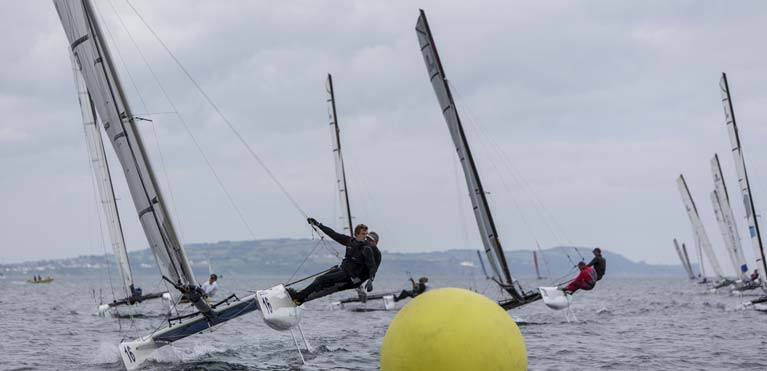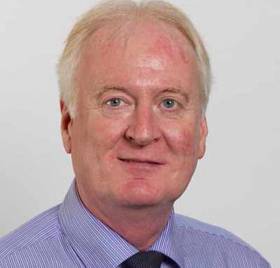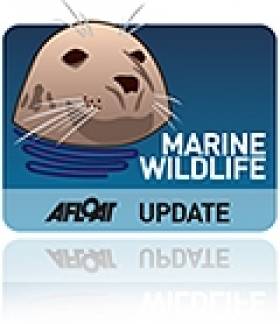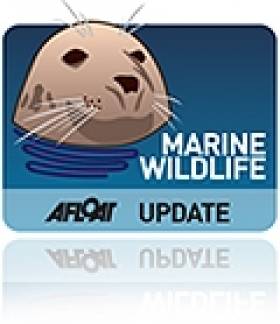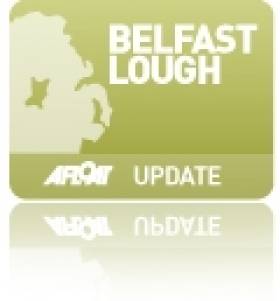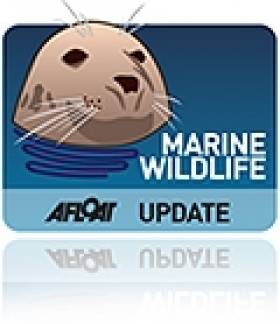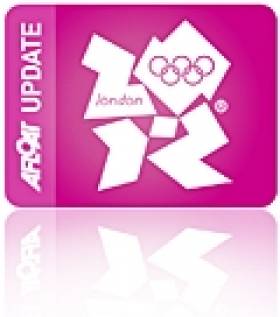Displaying items by tag: Royal Yachting Association
The RYA has launched a six-week series of racing rules webinars led by rules experts including Belfast Lough's own Chris Lindsay
The webinars will be free for racing sailors and aspiring race officials to introduce and explain the racing rules of sailing. Whether you are your club’s rules expert, a squad sailor or just want to know a bit more, the series will guide you through the racing rules to give you the best advantage on the race course.
The sessions will be delivered by some of the top names in the world of racing rules including British Sailing Team coach and strategist Mark Rushall, World Sailing Governance and Rules Consultant Jon Napier and Tokyo 2020 video umpire Chris Lindsay.
The webinars, which will be screened at 8 pm every Wednesday starting from April 29, will help you understand the right of way rules, how to deal with marks, obstructions and more. Each webinar will aim to be interactive, giving you the opportunity to get your questions answered, and will also be recorded for those who can’t make the initial screening.
This is an ideal way to prepare for the coming season, for whenever we’re back on the water again.
No camera or microphone is required to join - you can simply relax, view the slides and listen to the presenter as they explain each rule, and how they apply to real-life scenarios.
If you tune in live there will be the opportunity to ask the presenter your questions. To register click here
Howard Pridding Becomes Director of External Affairs at RYA
The Royal Yachting Association (RYA) has announced the appointment of Howard Pridding in the role of interim Director of External Affairs.
No stranger to recreational boating, Pridding previously worked in a variety of roles at British Marine for over 27 years and served as Chief Executive for more than five of those. Having taken the decision to seek new opportunities, Pridding is joining the RYA later this month and will head up the Cruising, Legal and Government Affairs division.
In his new role, Pridding will work closely with the Chief Executive and senior management team to ensure that recreational boating interests are represented effectively and that Government, in all its forms, takes full account of the sector's activities when balancing competing interests. The role has been appointed for an interim period of six months to enable a review of the existing structure and accountabilities of the Cruising, Legal and Government Affairs team.
The Director of External Affairs role also has an ambassadorial role as spokesperson for the recreational boating industry, the RYA's 111,000 members, and the organisation.
The RYA shares the global concern over events which transpired to prevent the Israeli team from competing at the recent Youth World Sailing Championships in Malaysia.
At the same time, it is encouraging to see the international show of support for the young athletes concerned who have missed out on the opportunity of World Championship competition for reasons outside their control.
The World Sailing constitution is unequivocal that the sport is to be open for participation by all, on equal terms, without regard for race, religion, or any other factor.
The obligation to uphold this principle applies to all Member National Authorities and is especially important in events involving future generations of sailors. Investigation
As such, the RYA asks that the investigation be swiftly and thoroughly concluded, and its findings shared transparently with the full World Sailing family.
#ryajob – The Royal Yachting Association in Northern Ireland (RYA NI) is seeking to appoint an Active Clubs Coordinator. The purpose of this role is work in partnership with RYA clubs and training centres to create and implement sustainable introductory and regular sailing and windsurfing activity. The successful applicant will work with RYA clubs and training centres to assist them with developing innovative initiatives and interventions to increase club membership and to create a range of training, learning, education and capacity building opportunities for coaches and volunteers. Closing date for applications is 4pm on Thursday 26th March 2015. More here
#MarineWildlife - UK environmentalists have expressed their disappointment at the British government's slow progress on developing its promised network of Marine Conservation Zones (MCZs), as the Belfast Telegraph reports.
The consultation period was for the proposals was set to end on Sunday 31 March - amid fears among conservation groups that were realised some months ago with the news that just 31 out of a potential 127 sites would be designated as protected for marine wildlife and plantlife by the end of this year.
It's being reported that Environment Minister Richard Beynon is blaming budget cuts and the high cost of scientific assessment for the slowdown in progress on the government's side.
"I want to do as many zones as we can for as little as we can," he told the BBC. "People have waited many years for this; we will designate the first tranche in September and will announce the next lot for consultation then."
The Royal Yachting Association (RYA) said in December that it was "encouraged" by the British government's "sensible" phased approach to the MCZ plans.
However, conservationists like Jolyon Chesworth from the Wildlife Trusts argue that their interests are being asked "to compromise on a compromise".
Chesworth added that the original 127 zones "were only nominated after very long discussions with anglers, sailors and the fishing industry".
The Belfast Telegraph has more on the story HERE.
RYA 'Encouraged' By Britain's Moves On Marine Conservation Zones
#RYA - The Royal Yachting Association (RYA) has said it is "encouraged" by the British government's approach to designating Marine Conservations Zones (MCZs) around the coastlines of England and Wales - the details of which have disappointed environmental groups.
RYA planning and environment advisor Caroline Price commented: “The phased approach that government is proposing appears on the face of it to be very sensible.
“The RYA has been resolute in insisting that an MCZ should be no larger than required to protect the habitats and wildlife features which it is intended to protect and that the scientific basis for designating a particular feature for protection should be sound.
“We are pleased therefore to see that ministers have recognised that they need to have a strong evidence base when looking to designate sites, from both an ecological and socio-economic perspective.
“We are particularly encouraged that the approach to highly protected sites is being reviewed as the proposals for Reference Areas are of great concern to us.”
Of the 31 sites proposed in the consultation for designation by the end of 2013, the RYA has objections to only one of the sites - the Aln Estuary, which contains "a small charted anchorage in the one location in which a vessel can stay afloat at all states of the tide in the estuary".
The response from the RYA comes just days after environmental groups in the UK expressed their dismay over the government's decision to designate just a quarter of the recommended 127 sites.
As the Guardian reports, Westminster was accused of a "lack of ambition" by the Marine Conservation Society (MCS) over the announcement last Thursday 13 December, which it says ignores the government's own advisers who recommend a 'coherent network' that includes immediate designation for 59 sites regarded as 'highly threatened'.
The RYA says it is "broadly supportive of government plans to establish a coherent network of Marine Protected Areas and Marine Conservation Zones.
"However, it has fought throughout the process to date, and will continue to do so, to protect the public right of navigation and to ensure, as far as is possible, that recreational boating interests are not adversely affected by the designation of such MCZs."
It also emphasises that the "omission of the detail of management measures from this [public] consultation means that we still don’t really know what designation will actually mean" to affected local communities.
RYA Volunteer Awards for Belfast Lough Sailors
#RYAAwards - Two sailors from Northern Ireland have received awards from the Royal Yachting Association for their voluntary work, as the Carrickfergus Times reports.
Belfast Lough locals Sheela Lewis from Whitehead received Karl Blythe from Carrickfergus were among 56 people commended by Britain's Princess Royal at the RYA Volunteer Awards in London recently.
Lewis, the first female commodore of the County Antrim Yacht Club, was presented with the Lifetime Commitment Award for her hard work in developing the small club's sailing courses.
And Blythe was nominated by Belfast Lough Sailability for the Youth Award for his dedication to helping others get into sailing and promoting the club online, even while facing the challenges of his autism spectrum disorder.
“I really enjoy helping out with Belfast Lough Sailability and don’t think I do anything more special than any other volunteer," said the 19-year-old. "I really enjoy getting involved, not only with the sailing and on-the-water activities but also helping behind the scenes."
Water Users Speak Out Over UK Marine Conservation Proposals
#MARINE WILDLIFE - Sailors, fishermen and SCUBA divers in England's West Country could face "tough new restrictions" if plans for conservation zones in the Irish Sea and around the UK coast go ahead.
According to This Is Cornwall, groups representing water users argue that marine protection plans "would have severe knock-on effects on those who rely on the south west's coastline for employment and leisure".
Alana Murphy of the Royal Yachting Association said: "A lot of the small inshore areas proposed as conservation zones coincide with estuaries and bays that are used by sailors for mooring, or for laying buoys for racing. We are concerned we could lose important sailing areas."
Companies involved in offshore renewable energy have voiced their concerns on the impact of marine reserved on their development, while the National Federation of Fishermen's Organisations added that the scale of proposed fishing reserves was too great, and could potentially push commercial fishermen "to other areas which will then get overfished".
As previously reported on Afloat.ie, the UK's Wildlife Trusts have expressed dismay that plans to establish Marine Conservation Zones in the Irish Sea and elsewhere have been shelved till at least next year after pressure from fishermen, boaters and other groups.
British Sailors Want Redress Over 1980 Olympic Boycott
#OLYMPICS - "Lingering bitterness" among British sailing veterans over the boycott of the 1980 Moscow Olympics has pushed them to seek recognition for the effort they put into their campaigns, the Daily Telegraph reports.
The Royal Yachting Association (RYA) was one of four sporting bodies that joined the British government's boycott of the Olympics that year.
But according to the sailors who had earned their spots at the games, the RYA's decision was made without consultation with them or the body's membership.
“They took away our dream, the fruits of months and years of hard work and dedication which is something I will regret until my dying day,” said Soling sailor Gavin Simonds, who is leading the charge for the RYA to make amends before London 2012 and assure that no sailor will be so deprived in future.
Simonds' brother Colin was the one of the leading Soling sailors in the world in 1980, and was reportedly devastated when the RYA backed that year's boycott.
The 1980 games saw Ireland win its only Olympic medals in sailing when David Wilkins and James Wilkinson took silver in the Flying Dutchman class. The president of Irish sailing's governing body has an honourary seat on the RYA council.
The Daily Telegraph has much more on the story HERE.



























